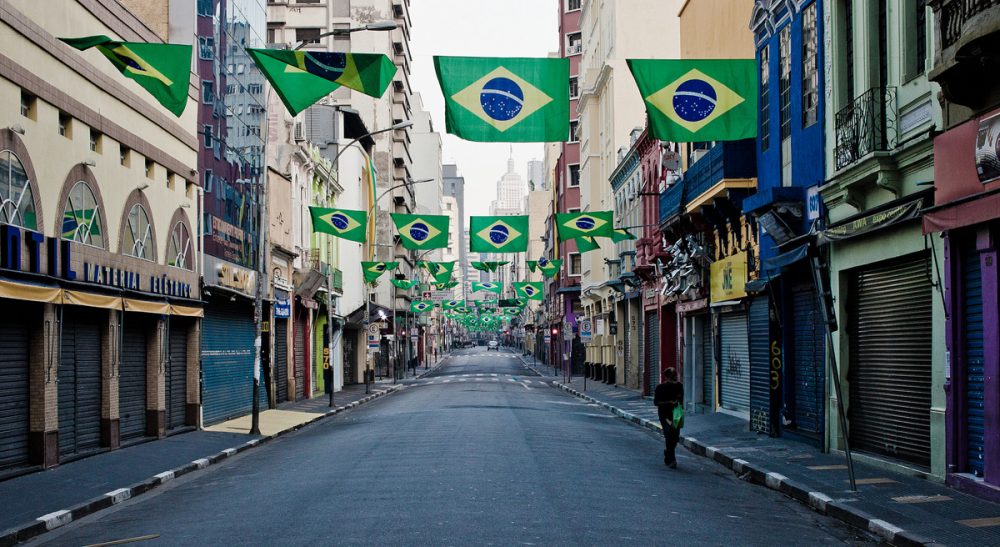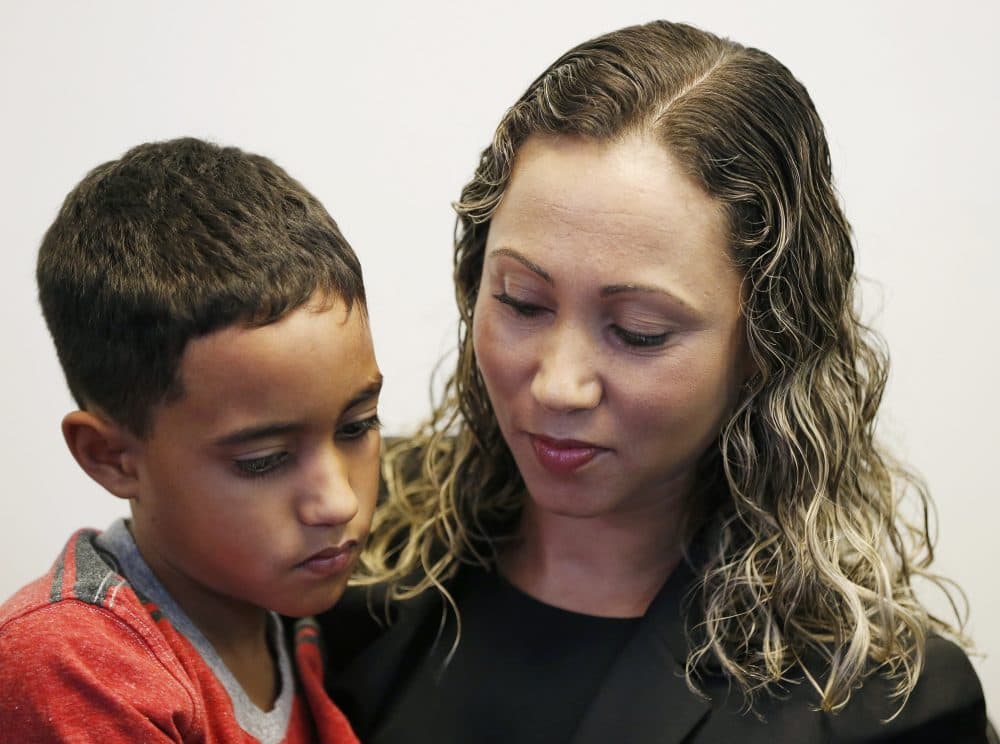Advertisement
Trump's Border Policies Mean Tougher Path For Brazilian Immigrants In Mass.
Resume
For nearly 40 years, Brazilian immigrants have come to Massachusetts in waves, starting in the early 1980s on the crest of economic and political crises in the South American country.
Now they're one of the largest immigrant groups in the state, and local activists say a new influx is underway due to turbulence in Brazil.
And Brazilians fleeing to the United States are facing stricter immigration policies than their predecessors did.
A 36-year-old Brazilian woman, who identifies herself only as W.R. for fear of government retribution, says that after years of abuse at the hands of her husband, fleeing Brazil was her only choice.
“You have to leave. Either you leave or you die. You die of hunger or of violence. You have to leave," she said, in Portuguese.
Facing death from hunger or violence, she and her 9-year-old son went to Mexico, planning to apply for asylum at the U.S. border. But her understanding of what could happen was based on what happened with earlier generations of immigrants.

Instead of being released as her claim proceeded, W.R. and her son were placed in a Texas detention facility in separate cells.
Two days later her son was taken away, and she wouldn’t see him for another for a month and a half.
“He’s very traumatized. He experienced DV for years. I had told him that we had to move because that would never happen in this new country … then suddenly they came and took him away from his cell, like he were merchandise. And nobody told me anything," she said.
The pain was beyond words, she said. She cried constantly and had trouble sleeping for the 45 days she and her son were apart.
The administration eventually stopped separating families, but many of the children remain in custody.
With the help of advocates in the Boston area, W.R. sued the administration. The government released her son before the judge could make a decision.
The two are part of a new wave of Brazilian immigrants that local activists, attorneys and researchers have come over the past three years.
According to the Brazilian consulate in Boston, there are 350,000 Brazilian nationals in Massachusetts, Maine, New Hampshire and Vermont.
It’s hard to say exactly how many have come over the last couple years, but the most recent data show the arrest of Brazilians on immigration issues nearly doubling from 2015 to 2016.
Experts say it's tied to three crises unfolding at once in Brazil: an economic downturn, a political crossroads and widespread violence — all in a country that just a few years ago promised to be a model for the developing world.
The New Brazilian Immigrants
At Esquina’s Lanches in Somerville, the cooks run rainbows of tropical fruit through blenders.
The spot is owned by Joao Santos, who's also an auto mechanic who came to the U.S. almost 20 years ago.
Santos estimates that 90 percent of the new Brazilians are white collar, with more education and more money, and they are less willing to do manual labor, like the earlier waves of Brazilian immigrants.
He says they are more likely to sell their businesses back home, and buy houses here.
Santos' analysis resonates with local activist Natalicia Tracy, who has a Ph.D. in sociology and is executive director of the Brazilian Workers Center.
"They move into the suburbs and somehow they tend to be more Portuguese looking or German. ... Class, money, they blend in. That’s why we haven’t heard of a lot of Brazilians," said Tracy.
But we're hearing about them now.
Tracy says that since President Trump began his policy of separating families, her office has been working to reunite a dozen families now based in Massachusetts, and she’s heard of dozens more in the area.
She says Trump's crackdown on immigration is shaking many Brazilians' perception of what America is about.
But for W.R., the mother separated from her 9-year-old for 45 days, it was worth it to come to the U.S., even with all they’ve been through.
"We went through this crisis, but we’re alive," she said.
After all they've experienced, now she feels no one will mistreat her son. He'll be able to go to school — have his own bed — and get the love and affection that comes only with family.
This segment aired on July 24, 2018.
